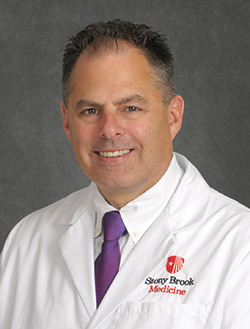 Opioid use and abuse is in the news virtually every day. But one area of concern that receives little press is opioid dependency among pregnant women.
Opioid use and abuse is in the news virtually every day. But one area of concern that receives little press is opioid dependency among pregnant women.
Like opioid use disorder in general, addiction in this group is a growing crisis. Babies delivered to mothers who are dependent on narcotics are born with the same problems as their mothers, and may suffer withdrawal symptoms soon after birth.
According to the American Congress of Obstetrics and Gynecologists (ACOG), District II, a group that represents specialists who treat pregnant women in New York, healthcare providers need to learn new strategies to help these patients and their newborns.
In a New York State summit held earlier this year, a number of key recommendations related to the opioid crisis and the care of pregnant women were developed. The summit was co-chaired by David Garry, DO, FACOG, Professor of Clinical Obstetrics and Gynecology at Stony Brook University School of Medicine, an expert on the topic of opioid dependency in pregnant women.
According to Dr. Garry, about 200 children have been born to drug-addicted mothers at Stony Brook University Hospital in recent years.
“This is a forgotten population,” he said. “We have had patients coming here withdrawing in labor and delivery.”
As a result of the summit, the ACOG recently released its white paper, “Opioid Use Disorder in Pregnancy; Actionable Strategies to Improve Management and Outcomes in New York State.” The paper provides New York State communities and healthcare providers with the tools to manage and reduce opioid use disorder in pregnancy.
"As a provider trained to prescribe buprenorphine (a medicine used to treat opioid dependency) to pregnant patients struggling with addiction, I believe this white paper highlights key solutions that could help women’s healthcare providers across the state better care for our patients and encourage more providers to become buprenorphine prescribers," Dr. Garry said. "Just receiving buprenorphine training is not sufficient. More mentorship opportunities for providers are needed for them to be fully successful."
The key recommendations and sample strategies from the white paper include:
- Change perceptions of opioid use disorder through the use of a common language. For example, replace “drug abuser” with “person with a substance use disorder” and say “in recovery” rather than being “clean.”
- Develop and offer multifaceted education and implementation tools to better assist women’s healthcare providers in caring for pregnant women with opioid use disorder.
- Create better engagement and communication among providers within the continuum of care and across service areas, including the justice system.
- Enhance patient and family engagement.
“Pregnancy provides an ideal opportunity to identify and treat women with opioid use disorder and reduce potentially negative health outcomes for both the mother and her child,” said Task Force Co-chair Leah Kaufman, MD, FACOG, Residency Program Director and Vice Chair of Obstetrics and Gynecology at SUNY Upstate Medical University in Syracuse, NY. “While there has been a lot of attention paid to the opioid crisis overall, we felt we needed to identify the specific challenges and propose solutions associated with caring for pregnant patients with opioid use disorder and put those recommendations into action.”
To read the white paper click here.

